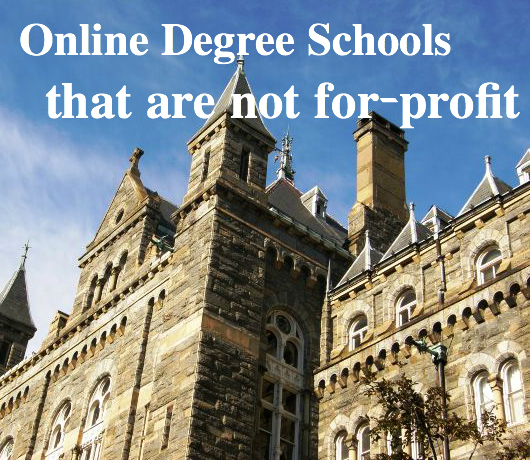To many people, the idea of “going to college” means getting a bachelor’s degree. But changes the way people work in all sorts of industries have made it less clear whether you need a bachelor’s degree or an associate’s degree to succeed, or if you really need any college degree at all.
Some careers, like law or medicine, still require you to have a a bachelor’s and a postgrad degree. But nurses, for example, often get hired with only an associates degree, and tech workers may qualify for work with major companies with just a certificate from a coding academy. Picking the right degree for you to pursue depends largely on having a solid picture of what you want to do after you get out of school, or at least of the first thing you want to do after you graduate. You don’t want to spend thousands of dollars to wind up overqualified for the job you want. But for some career paths, you will want to get the four year degree. The choice you make will have a huge effect on how much money you spend on school.
You can avoid a big problem by asking yourself a key question: Will I be able to actually finish my chosen degree program? Don’t think for a minute this is a minor issue. According to the National Center for Education Statistics (NCES), about 64% of students who start a bachelor’s degree in the U.S. finish it within 6 years. Obviously, that means that more than a third of all these students never finish their degrees. The numbers are much worse for 2 year associates programs, only 34% of students who start an AA or AS degree finish it in three years, according to NCES. It all adds up to millions of dollars in tuition wasted on incomplete degrees.
Some key issues you want to consider are:
- Can I actually afford this degree program?
- Will my family and/or work commitments make it impossible to do all my schoolwork?
- Will this degree qualify me for a job that pays well enough to allow me to pay off any student loans I man need to take out?
- Am I the right kind of person for the job this degree is likely to qualify me for?
Salary Numbers For Bachelor’s Vs. Associate’s Degrees
According to a 2021 Georgetown University Study reported in Forbes Magazine, the median lifetime earning number for associate’s degree holder is about $2 million dollars. That’s more than the $1.6 million median earning of a typical high school grad, but not by a great deal. Bachelor degrees appear to provide a bigger earnings boost, allowing degree holders to earn a median of $2.8 million in their lifetimes. (Master’s degree holders earn an impressive $3.2 million lifelong).
But it depends heavily on what you major in. The highest paying associates degrees are in technical fields across health, engineering and construction, according to CBS News, while those with degrees in music, film and English language earn far less. The story is similar for 4-year degree holders. A report in CNBC also concludes that bachelor degree holders with the highest salaries are generally in computer, chemical or aerospace engineering.
Some key benefits to consider: An Associates Degree
- You can get into the workforce faster: Associates’ programs at community colleges and other schools tend to focus on real career skills in healthcare, accounting law enforcement and other areas where workers are needed. That kind of learning can get your foot in the door in some jobs sooner, and you can decide later whether to go back to complete a BA.
- Affordability: I can be nice to avoid piling up a mountain of debt on your degree. An AA or AS will obviously cost you far less than a bachelor’s.
- Bachelor’s completion option: An associate’s program can give you a great opportunity to test the waters in a particular major. Then, after the first two years, you can decide whether to carry on to finish your bachelor’s in the same subject or make a change of direction.
Potential Bachelor’s Degree benefits:
- You’ll be well rounded, with stronger presentation skills: Because BA and BS programs require general courses in a range of subjects outside your major, they tend to give you a broader knowledge set. Additionally, you’ll tend to find yourself interfacing with more advanced professors and a more highly educated group of students. All that tends to help you present a more professional, worldly impression to employers when you start interviewing for jobs.
- Greater Career options: For many jobs in engineering, healthcare, law, business management and other areas, you simply will not be considered without a bachelor’s degree. In very forward-thinking tech companies and startups, you may find that the traditional bachelor’s degree is less valued than your experience, but the BA or BS will tend to open many doors to interviews for you that would otherwise be shut.
- Better potential earnings: As noted above, bachelor’s degree holders generally have much higher lifetime earnings than those with a high school diploma or associate’s degree only.
- Career Change flexibility: Because BA programs focus largely in critical thinking and analytic skills, they can equip you to solve a variety of complex problems. That kind of skill can make you more flexible in the types of industries you can work in. It’s an important consideration since many, many college grads end up working in a business other than the one they started in right after school.
The choice of a degree should depend on where your real interests lie and how much time and money you realistically have to invest in school. It’s always good to know that if you start with an associate’s degree, you can always go back to school and finish the work to complete a bachelor’s degree.

 A direct entry degree program in nursing is designed to qualify you as quickly as possible for an advanced nursing position. They make it possible to start your nursing career many steps up from he bottom, even if you have not taken the educational and employment path that most RNs do in their early stage of their careers. The main beneficiaries of direct entry masters (sometimes called simply “MDE”) degrees are:
A direct entry degree program in nursing is designed to qualify you as quickly as possible for an advanced nursing position. They make it possible to start your nursing career many steps up from he bottom, even if you have not taken the educational and employment path that most RNs do in their early stage of their careers. The main beneficiaries of direct entry masters (sometimes called simply “MDE”) degrees are: